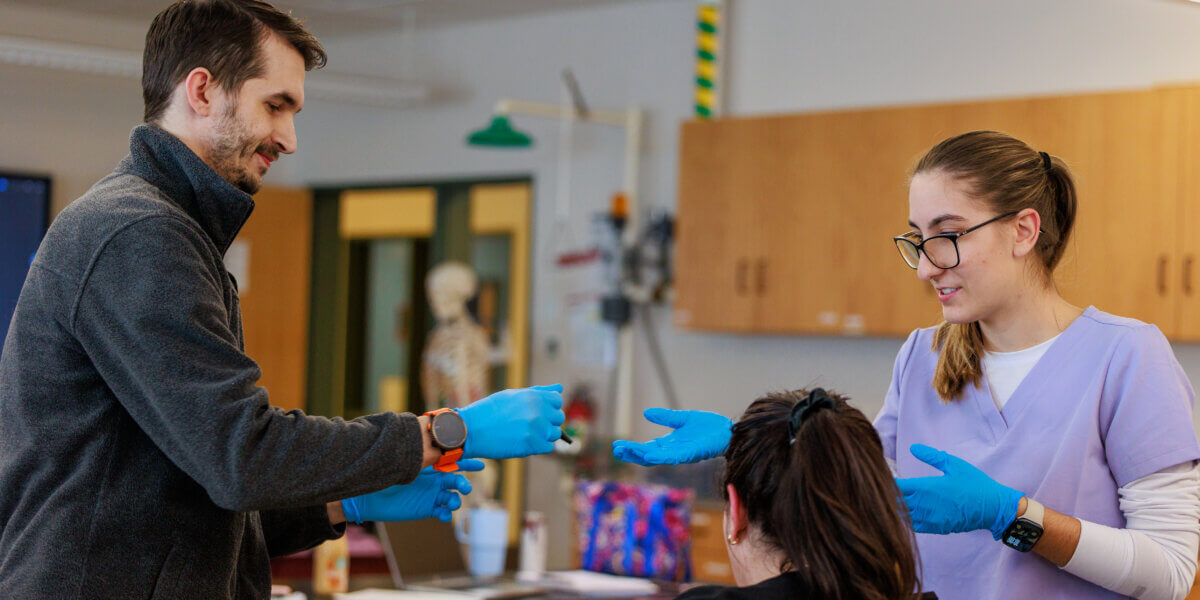CCV welcomes all students and strives to provide equal access to college courses for students with disabilities. If you need accommodations because of a disability that impacts your learning, it is your responsibility to take at least one of these steps:
- Answer “yes” to the disability question on your CCV application.
- After submitting you will receive an email with next steps (also listed below).
- Complete the student self-disclosure form.
- You can complete this even if you don’t know what accommodations you need. Accommodations can be updated and changed as needed when appropriate.
- Tell an accessibility advisor or accessibility support staff that you have a disability and you would like accommodations.
- Your accessibility advisor can help you through the process. This person will also be your academic advisor and will support you in meeting your goals. You’re also free to bring someone to your meetings.
It is recommended that you take at least one of these steps as soon as possible to allow for planning and preparation.
Obtain Accessibility Services
Step 1: Learn about Accessibility Services at CCV
Learn more about accessibility services at CCV by reading our Accommodation Policy (PDF) (compatible with screen readers).
If you had an IEP or 504 in high school, you may have some expectations for what accommodations look like in college. If so, we recommend that you review the following pdf document to clarify misconceptions or confusion about the process.
Differences between High School and College Accommodations (PDF)
Step 2: Gather Your Documentation
Collect any official paperwork that:
- states and describes your disability,
- explains how your disability may impact learning, and
- is from an authorized agency, individual, or appropriate medical source and includes the names, titles, and professional credentials of the evaluator(s) or professional who can verify the disability
- suggests reasonable accommodations (optional)
Examples of documentation include:
- doctor’s letter dated, signed and printed on office letterhead
- psychoeducational evaluation dated and signed by a psychologist
- complete report from high school (IEPs and 504 plans are sometimes incomplete)
Step 3: Submit Your Documentation to CCV
You may drop off, mail, email, or fax your documentation to the CCV center nearest you (please note – Springfield and Middlebury locations will not be able to process your documentation). An accessibility advisor will review your documentation in advance of your appointment with them.
Step 4: Schedule an Appointment to Create Your Accommodation Plan
Schedule an appointment by calling your local center to request a meeting with an accessibility advisor. During your appointment, we will discuss your requests. Together we will consider your interests, strengths and weaknesses, documentation, course requirements, and the reasonability of your requests. Using this information, we will create your accommodation plan.
Accommodation plans need to be renewed each semester. Please reach out to your accessibility advisor before the start of classes each semester. Accommodations cannot be applied retroactively.
Step 5: Share Your Accommodation Plan with Your Instructors
You may email or give your plan directly to your instructor. If you or your instructor have any questions, you may ask your accessibility advisor.
Step 6: Check in Regularly with Your Accessibility Advisor
By checking in regularly with your accessibility advisor you will be able to maximize the benefits of your accommodation plan. Throughout college, you’ll be able to:
- clarify learning preferences,
- develop and sharpen learning strategies,
- ask for help,
- use resources such as Tutor.com and learning centers,
- practice new ways to study and remember information, and
- confirm which accommodations serve you best.
Online Course Accessibility Standard
The Community College of Vermont is committed to ensuring accessibility of its online coursework. CCV expects all online courses will conform to WCAG 2.1 AA standards, and the college will promptly address issues of inaccessibility. Those with concerns about the digital accessibility of an online class and/or the digital materials used for an online class may notify the college using the Digital Accessibility Alert Form.
CCV Accessibility Advisors
Cody Miller – 802-786-6996
- Bennington
- Brattleboro
- Rutland
- Springfield
Laurie Cook – 802-828-4060
- Montpelier
- Morrisville
- Newport
- St. Johnsbury
- Upper Valley
Kate Anderson, Liese Reagan – 802-654-0970
- Middlebury
- St. Albans
- Winooski
Students taking classes exclusively online may reach out to any accessibility coordinator.
Northern Lights at CCV
Joanne Rouleau – 802-828-0621
ADA Officer
Angela Albeck – 802-654-0690





